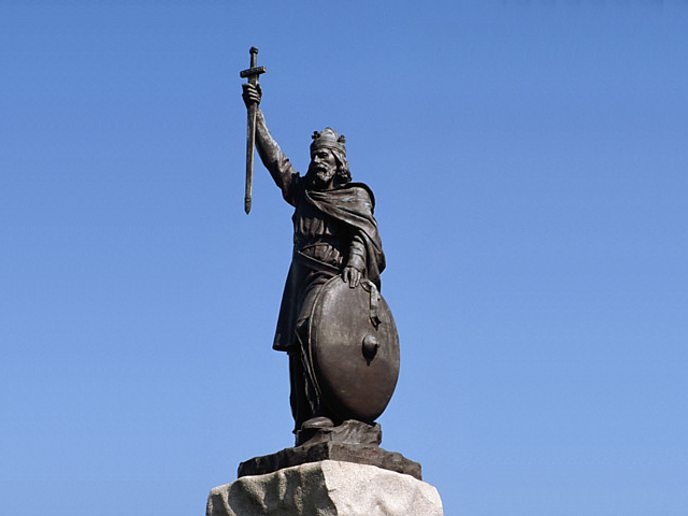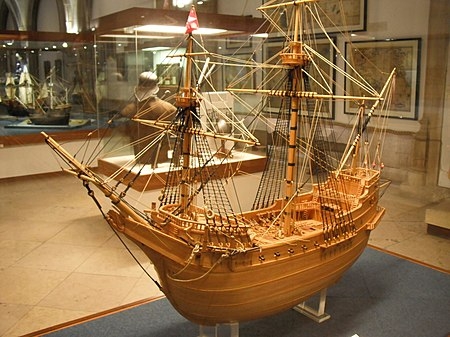| Colonisation | ||
In ‘The
Life of Brian’, in order to galvanise his group
into throwing off the yoke of their oppressors,
Reg, the leader of the People’s Front of Judea,
asks them ‘What have the Romans ever done for
us?”. And to this rhetorical question he receives
the slightly surprising answer “Sanitation?”,
followed by others suggesting medicine, education,
wine, public order, irrigation, roads, a fresh
water system and public health. “All right, he
says, but apart from all that, what have the
Romans ever done for us?” Which quite neatly sums
up the present difficulty we seem to be having
with our assessment of colonisation and empire.
One of Britain’s leading publishers has been accused of cancelling a book on colonialism which concluded that the British Empire was not all bad. Rather than publish his book, ‘Colonialism: A Moral Reckoning’, Bloomsbury, publisher of the Harry Potter series, chose to pay off Professor Nigel Biggar, then Regius professor of moral and pastoral theology at Oxford. This was despite having described it as a work of “major importance” when it was delivered to them. According to journalists working for the Times, emails exchanged between Biggar and Bloomsbury show how the publisher went from enthusiastic to unwilling to publish in three months. This was under pressure from junior staff. The book argues that despite grave mistakes and moments of gross injustice, the British Empire learnt from its errors and was increasingly propelled by humanitarian and liberal ideals, most notably through the abolition and suppression of slavery. It also examines the work of a number of historians who Biggar claims “overstate” the sins of British colonialism, concluding that they are sustained by contempt for the West. Obviously his is a very unfashionable view. Not at all woke. And it
was not only the British who engaged in
colonisation. It can be seen in the history of
every continent and part of the world over the
millennia. What then can we say about the effect
of the colonisation of the pre-colonial English?
The Romans controlled
most of the then known world for a considerable
time, had
slavery, suppressed local tribes and considered
non Romans to be lesser races. Here in Britain
they acted in a similar manner.
They also gave us the basis for our current civilisation, they showed us how to cultivate and irrigate, how to use concrete, build houses and cities with plumbing and heating and they built roads and bridges. Nowadays we celebrate them as a great empire which helped to create the modern (European) world. Empires are neither all bad or all good in terms of their outcomes as opposed to their motives. And so we praise the Roman achievements, but at the same time we Brits admire Boudica who wanted no more than to expel the Romans and preserve the dominance of her Iceni tribe. Of course, when the Romans finally left we quickly descended once more into petty tribal conflicts and so unable to resist invasions and colonisation by the Danes, Saxons and others.  It was 300 years
before Alfred the Great (from a Saxon family) was
able to impose unity again with laws affecting
every part of his kingdom (rather than tribal
customs), a communal army and navy, the
construction of fortified villages alongside hill
forts, farming settlements and an economy capable
of engaging in international trade and learning.
So what did the various colonisers do for us?
Well, quite a lot actually. Was colonisation -
taking over another country - justifiable?
Obviously not, but it can be both unjustifiable
and have beneficial effects. It was 300 years
before Alfred the Great (from a Saxon family) was
able to impose unity again with laws affecting
every part of his kingdom (rather than tribal
customs), a communal army and navy, the
construction of fortified villages alongside hill
forts, farming settlements and an economy capable
of engaging in international trade and learning.
So what did the various colonisers do for us?
Well, quite a lot actually. Was colonisation -
taking over another country - justifiable?
Obviously not, but it can be both unjustifiable
and have beneficial effects. But let us go back to our own colonising past. How did it come about? A book by historian David Howarth – ‘Adventurers’ – tells us that in late summer in 1592 an enormous trading ship named the Măe de Deus (Mother of God) arrived in Dartmouth harbour. Built in Lisbon a few years earlier, she was three times bigger than any vessel built by the Tudors: 165ft long with  seven decks. Her
hull though was broken and patched up. And the men
on her bridge were not Portuguese merchants, but
English privateers. The ship had been stolen from
the Portuguese after a fierce battle near the
Azores. seven decks. Her
hull though was broken and patched up. And the men
on her bridge were not Portuguese merchants, but
English privateers. The ship had been stolen from
the Portuguese after a fierce battle near the
Azores. But her arrival in Elizabeth I’s realm would change history. Her cargo consisted of 900 tons of spices, drugs, silks, dyes and carpets, along with oddities such as coconuts and elephant’s teeth. It was worth more than the entire annual revenue of the Exchequer. More valuable was a book, known as a “rutter”, a mariner's handbook of written sailing directions. It contained commercial intelligence about trading with China and Japan. The bounty brought to our shores and the stolen intelligence which promised more to come, convinced a group of English businessmen that trade with the east was the route to unlimited wealth. Eight years later the East India Company was formed. It became the biggest corporation in the world, deployed three armies and a fleet of gunships. With the encouragement of the first Queen Elizabeth and later monarchs it colonised swathes of India and south-east Asia. It sold illegal drugs and slaves and employed psychopaths and administrators to carry out its mission. But at the time when the East India Company received its first royal charter to explore trade with the Far East, England was a second-rate maritime power. It lagged far behind the Spanish and faced stiff competition from the Dutch. In the last decades of the 16th century the Spanish Empire (which then included Portugal) was dominant in the conquest of the Americas and large-scale trade with the East. But they had to contend with he English privateers - state-sponsored pirates - who stole ships, pilfering their goods and secrets. Another problem was the Spanish failure to invest in state-of-the-art shipping yards “in an era as competitive for ship-building as artificial intelligence [is] today”. However, when the first charter turned the swashbuckling privateers into a state authorised business it was not assured of success. The early Company investors - ‘the Adventurers’ - were mostly not people with the expertise needed to run that sort of business. And then the Company had a difficult relationship with the monarchs who signed its charters. The monarchs wanted their cut - and soon. Elizabeth approved the Company’s formation in 1600 but then immediately began criticising its directors for not pursuing their business energetically enough. A letter sent to the company informed them of “Her Majesty’s mislike of the slackness of the Company” and told them that the Dutch “prosecute their voyages with a more honourable resolution”. So then, as the genetic product of my British, Roman, Scandinavian and French colonising and colonised forebears, what can I make of all this? It is hardly surprising that government policy, whether democratic or monarchist, is carried out with, shall we say, mixed motives. It is equally obvious that governments do not follow every change of public opinion. And past public opinion does not conveniently align with the views we hold nowadays. Slavery is a case in point. Although our anti-slavery legislation was passed in 1833, it had been a long road to that point. Even in 1833, there was still a lot of resistance to the idea - hence the sweetener in the Act of the payment of compensation to those who had lost their source of income. The history of large-scale British anti-slavery organisations in fact dates only from the late 1780s. There had been individuals, such as Wilberforce, who believed slavery to be wrong and there was Lord Mansfield’s ground-breaking decision in the Somersett case (1772), which prevented ‘masters’ from taking African ‘servants’ out of Britain against their will, but persuading the public as a whole to care about slaves was a difficult task. Not only were the slave owners in the Caribbean portraying themselves as benevolent masters helping their ignorant and unintelligent slaves to live productive lives, but the life of the ordinary person in Britain was awful as well. We have contemporary records of the terrible living conditions of the workers in post-industrial revolution Britain. Of course, we can try to judge what happened in the past to decide whether, perhaps on a fiendishly complicated points system, it should be labelled as good or bad. Or maybe all that we can realistically do is look at what actually happened and decide in respect of each aspect of life in the past which we would want to see repeated in the present. Not much I suspect. 30 January 2023 Paul Buckingham |
||
|
|